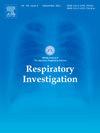Long-term safety and effectiveness of mepolizumab for patients with bronchial asthma in routine clinical practice in Japan — final report of special drug use investigation
IF 2.4
Q2 RESPIRATORY SYSTEM
引用次数: 0
Abstract
Background
Mepolizumab is an anti-interleukin-5 (IL-5) monoclonal antibody that blocks IL-5-driven airway inflammation, including eosinophilia. Mepolizumab is well tolerated and effective in reducing exacerbations in patients with bronchial asthma. However, limited real-world data are available for treatment outcomes of mepolizumab in patients with bronchial asthma in Japan. Therefore, this large-scale study aimed to assess the long-term safety and effectiveness of mepolizumab in patients with bronchial asthma in Japan.
Methods
In this real-world observational study conducted between January 2017 and September 2023, patients with bronchial asthma who had available data in an electronic data capture system for at least 52 weeks prior to subcutaneous mepolizumab treatment were monitored for 52 weeks from their first dose of mepolizumab. Safety was evaluated based on patient-reported adverse drug reactions (ADRs), and effectiveness was evaluated by frequency of asthma exacerbations, changes in Asthma Control Test (ACT) scores, and peak expiratory flow (PEF).
Results
Overall, 1061 patients were enrolled. ADRs were reported by 4.1 % of patients in the safety population (n = 1027). No new safety concerns were identified. The overall effectiveness was evaluated in 959 patients in the effectiveness population. Post-mepolizumab initiation, asthma exacerbations were reduced from 3.8 to 1.0 per person-year; mean (standard deviation [SD]) ACT scores improved from 15.9 (4.6) to 21.4 (3.9); mean (SD) PEF improved from 304.4 L/min (146.8) to 349.5 L/min (134.7) compared with pre-mepolizumab initiation.
Conclusions
This analysis of real-world data demonstrates that mepolizumab was well tolerated and effective in patients with bronchial asthma in Japan.
mepolizumab在日本支气管哮喘患者常规临床实践中的长期安全性和有效性——特殊用药调查的最终报告
mepolizumab是一种抗白细胞介素-5 (IL-5)单克隆抗体,可阻断IL-5驱动的气道炎症,包括嗜酸性粒细胞增多症。Mepolizumab耐受性良好,可有效减少支气管哮喘患者的急性发作。然而,在日本,mepolizumab用于支气管哮喘患者的治疗结果的真实数据有限。因此,这项大规模研究旨在评估mepolizumab在日本支气管哮喘患者中的长期安全性和有效性。在2017年1月至2023年9月期间进行的这项现实世界观察性研究中,在皮下美polizumab治疗前至少52周的电子数据采集系统中有可用数据的支气管哮喘患者从首次给药美polizumab开始监测52周。根据患者报告的药物不良反应(adr)评估安全性,通过哮喘发作频率、哮喘控制测试(ACT)评分的变化和呼气峰流量(PEF)评估有效性。结果共纳入1061例患者。安全人群中4.1%的患者报告了不良反应(n = 1027)。没有发现新的安全隐患。在有效人群中的959例患者中评估了总体有效性。mepolizumab启动后,哮喘发作从3.8次/人/年减少到1.0次/人/年;ACT平均分(标准差[SD])从15.9分(4.6分)提高到21.4分(3.9分);与mepolizumab启动前相比,平均(SD) PEF从304.4 L/min(146.8)提高到349.5 L/min(134.7)。结论:对真实世界数据的分析表明,mepolizumab在日本支气管哮喘患者中耐受性良好且有效。
本文章由计算机程序翻译,如有差异,请以英文原文为准。
求助全文
约1分钟内获得全文
求助全文

 求助内容:
求助内容: 应助结果提醒方式:
应助结果提醒方式:


